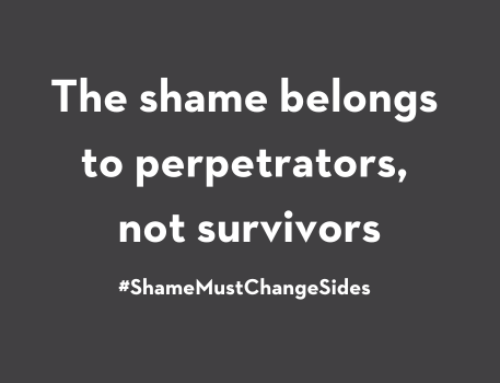
You don’t want to get in trouble for smoking. But you also don’t want to get “unfriended” for not smoking.
How do you respond? How do you teach your children to respond?
This is the kind of question participants discuss in the teen healthy relationships programs that are funded by the Canadian Women’s Foundation. The programs teach strategies for developing boundaries, empathy, assertiveness and conflict resolution — skills that parents can also teach at home.
At our recent panel discussion on teen healthy relationships, we asked program representatives to share tips for parents. Here’s a summary of their advice:
Tip 1: Practise and role-play – “It’s more than just didactic teaching,” says Debbie Chiodo, a research associate with the Centre for Addiction and Mental Health Centre for Prevention Science. “Information alone is not going to change behaviour in young people.” It’s important to put teens in hypothetical situations and practise the relationship skills that are being taught. “You hope that translates as they move forward,” Chiodo says.
Tip 2: Talk about consent – Teaching consent to children can start as early as three years old, says Shequita Thompson, program coordinator for METRAC’S ReAct program. Empowering children with a sense of autonomy over their bodies and the right to say, “No, that doesn’t feel right,” or “I don’t want a kiss or a hug right now,” will help them navigate the more complex romantic situations they encounter in their teens.
Tip 3: Teach assertive communication – Teen healthy relationship programs help participants distinguish between passive, aggressive and assertive communication, says Anuradha Dugal, director of violence prevention at the Canadian Women’s Foundation. This helps them develop tactics for facing peer pressure assertively, Dugal says, “even if you don’t want to make a decision, but you still need to stand up for yourself.” When teens are pressured to smoke or drink at a party, for example, they have the option to respond in a way that delays decision-making, re-directs the conversation or de-pressurizes the situation.
Tip 4: Connect offline with online – Given the amount of time teens spend online, it’s important that they take healthy relationship skills with them. If teens’ online behaviour goes astray, Dugal says, cutting them off from their phones or the Internet isn’t the solution. “If there are problems, they need to be dealt with online.” Parents can also help re-direct behaviour, so that teens are connecting with positive online activities and communities.
Tip 5: Create safe spaces – The panelists emphasized the value of offering safe spaces, where teens know they can open up without fearing judgment or shame, even if they didn’t make the ideal decision. When teens don’t feel they can talk to their parents, it’s important that they know who they can go to.At home, parents should do their best to listen when kids talk and resist being confrontational. “Then you find that magic moment when you can shine a spotlight on it and offer them a values-based approach,” Dugal says. “It’s really important to just be present. That’s a wonderful gift you can give them.”
For more pointers on healthy relationships, check out our tip sheet for parents.







